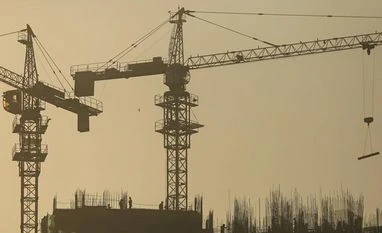Demand in the affordable housing sector is expected to go up in an otherwise slow real estate market, following the measures announced in the Union Budget.
With the incentives announced, there will be a rush by private entities in especially Tier-II and Tier-III cities, observers said.
According to the Budget announcements, 100 per cent deduction for profits will be given to developers for flats up to 30 sq metres in Chennai, Delhi, Kolkata or Mumbai, and 60 sq metres in other cities. These projects have to be approved during June 2016 to March 2019 and completed in three years. However, Minimum Alternate Tax will still be applicable.
With the incentives announced, there will be a rush by private entities in especially Tier-II and Tier-III cities, observers said.
According to the Budget announcements, 100 per cent deduction for profits will be given to developers for flats up to 30 sq metres in Chennai, Delhi, Kolkata or Mumbai, and 60 sq metres in other cities. These projects have to be approved during June 2016 to March 2019 and completed in three years. However, Minimum Alternate Tax will still be applicable.
Also, there will be an exemption from service tax on construction of affordable houses up to 60 sq metres under any scheme of the central or state government, including public-private partnership schemes.
Brotin Banerjee, managing director, Tata Housing Development Company, says the announcements “will not only attract more private investments in affordable housing but also put responsibility to finish the project within three years. This might lead to additional investment in technology”.
According to data from real estate consultancy Liases Foras, the supply of flats up to 30 sq metres in the metros is around 9,000 units, led by the Mumbai Metropolitan Region and the National Capital Region. The supply of flats up to 60 sq metres in 23 cities in India, outside the metros, are 163,722 units in all, a fourth of their total supply.
“Pune is likely to benefit from the service tax exemption of houses up to 60 sq mt, since the demand for 1 BHKs and compact 2BHKs is the highest in this city,” said Pankaj Kapoor, founder of Liases Foras. Nashik, Nagpur, Ahmedabad and Kanpur are the other cities where supply of units below 60 sq m is high. The budget has proposed to give a deduction for additional interest of Rs 50,000 per annum for loans up to Rs 35 lakh sanctioned during the next financial year for a first-time home buyer, if the value of the house does not exceed Rs 50 lakh. Anuj Puri, chairman, JLL India, says most first-time home buyers in the major metros will be left out of this.
"It will mostly benefit first-time home buyers in tier-III and tier-II cities,” he said.
According to experts, the biggest hindrance to the scheme of affordable housing is the availability of funds for buyers and unless the government incentivises first home buyers, this will be a distant reality.
)